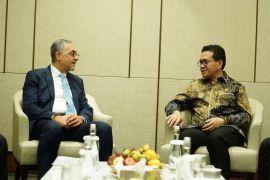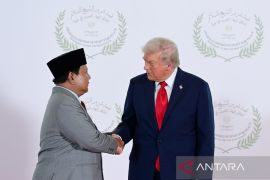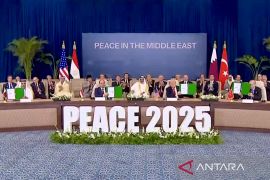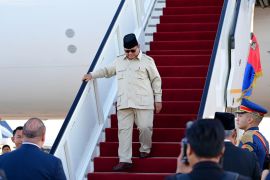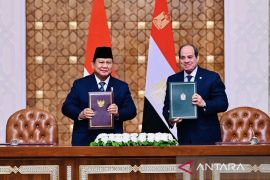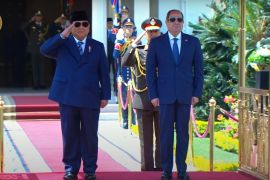Cairo, (ANTARANews) - The livestock markets in Egypt witnessed a recession ahead of Eid al-Adha, or the Islamic "Festival of Sacrifice," because of hikes in animal prices and worsening economic conditions.
"This season, fewer people are approaching markets to buy sacrificial animals," livestock vendor Ahmed Fathy said as he fed a sheep in a livestock market in the Egyptian capital Cairo.
The young man said customers visit the market but few of them buy animals, attributing it to the high prices of cattle as well as the deteriorating living conditions of many Egyptians.
"Last year was way better. I almost sold all my animals. However, this year I have not even sold half of them," Fathy said while looking around to search for customers.
Eid al-Adha is celebrated by Muslims worldwide once a year in memory of Prophet Abraham`s near-sacrifice of his own son as ordered by God.
The holiday is marked at the end of the pilgrimage rituals in Saudi Arabia when Muslims slaughter sacrificial animals in hope of getting closer to God.
The frustrating economic conditions as well as high poverty rates led livestock traders to make unprecedented offers in order to sell their animals, Xinhua said.
"I have an installment payment system for people I trust. Buyers can pay half of the price and pay the rest on the monthly basis upon an agreement," Fathy added.
Meanwhile, Egyptians are forced to pool funds to buy a sacrificial animal, and then share it between five to eight persons.
Egypt has been suffering economic recessions over the past few years because of political instability and security challenges.
Since late 2016, Egypt has been going through a strict three-year economic reform program, starting with local currency floatation to contain U.S. dollar shortage followed by austerity measures, energy subsidy cuts and tax increases.
The liberalization of the Egyptian pound encouraged the International Monetary Fund to support Egypt`s economic reform plan with a 12-billion-dollar loan, two thirds of which have already been delivered to the North African country.
Not far away from Fathy, Moahmmed Hany, an Egyptian engineer in his 30s, was bargaining with another livestock vendor over the price of a sheep.
"The prices of sacrificial animals are really high this year," Hany told Xinhua.
He spent more than one hour in the market searching for a cheap sheep and finally found a small one.
"But it is still more expensive than I expected," he lamented.
The young engineer said he used to slaughter a cow or a camel in previous years, "but the price hikes of all commodities forced me to buy cheaper animal for the sacrifice feast."
The price of one kg of a calf ranges between 50-55 Egyptian pounds (2.79-3.07 U.S. dollars), while the price of one kg of sheep stands at 65 pounds, Hany explained.
"So, buying a sheep is more convenient for me ... I want to keep the habit to slaughter a sacrifice in the feast," he said.
Reporter: Antara
Editor: Chaidar Abdullah
Copyright © ANTARA 2018
